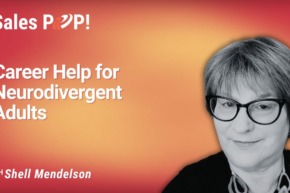In today’s fast-paced and ever-evolving business landscape, the concept of leadership has undergone a significant transformation. Traditional leadership models, which often emphasized business acumen and strategic decision-making, are now being complemented by a more holistic approach. This approach integrates self-awareness, emotional intelligence, and a mind-body-spirit connection to create well-rounded and effective leaders. In a recent interview with John Golden from Pop Online Sales Magazine and Pipeline CRM, Mara Benner, a successful small business entrepreneur and practitioner with the GW Center for Integrative Medicine, they delved into the nuances of modern leadership. This blog post will summarize their conversation’s key insights, offering actionable advice and expert recommendations for aspiring leaders.
The Importance of Holistic Leadership
Understanding Holistic Leadership
Holistic leadership is about recognizing that a leader’s personal and professional lives are interconnected. Mara Benner emphasizes that whatever challenges a leader faces in their personal life are likely to manifest in their work life as well. Therefore, addressing these issues head-on through self-awareness and self-regulation is crucial for success.
Key Components of Holistic Leadership:
- Self-Awareness: Understanding one’s emotions, strengths, weaknesses, and triggers.
- Self-Regulation: Managing one’s emotions and behaviors in various situations.
- Mind-Body-Spirit Connection: Integrating physical, mental, and spiritual well-being into leadership practices.
Actionable Tips for Embracing Holistic Leadership
1. Conduct Regular Self-Check-Ins:
- Take time each day to reflect on your emotions and thoughts.
- Identify any stressors and their physical manifestations in your body.
- Practice mindfulness or meditation to enhance self-awareness.
2. Integrate Wellness Practices:
- Incorporate activities like meditation, yoga, or qigong into your daily routine.
- Focus on holistic health by addressing physical, mental, and emotional well-being.
- Seek professional guidance, such as working with a coach or therapist.
3. Foster a Supportive Environment:
- Encourage open communication and emotional expression within your team.
- Provide resources for mental health and wellness.
- Lead by example by prioritizing your well-being and demonstrating self-care practices.
The Role of Emotional Intelligence in Leadership
Defining Emotional Intelligence
Emotional intelligence (EI) is the ability to recognize, understand, and manage our own emotions and the emotions of others. It plays a critical role in effective leadership, as it enables leaders to build strong relationships, navigate social complexities, and make informed decisions.
Components of Emotional Intelligence:
- Self-Awareness: Recognizing and understanding your own emotions.
- Self-Regulation: Managing your emotions and impulses.
- Motivation: Being driven to achieve goals for intrinsic reasons.
- Empathy: Understanding and sharing the feelings of others.
- Social Skills: Building and maintaining healthy relationships.
Enhancing Emotional Intelligence
1. Practice Active Listening:
- Pay full attention to the speaker without interrupting.
- Show empathy by acknowledging their feelings and perspectives.
- Ask open-ended questions to encourage deeper conversations.
2. Develop Self-Regulation Techniques:
- Use deep breathing exercises to calm your mind during stressful situations.
- Practice mindfulness to stay present and focused.
- Set boundaries to manage your time and energy effectively.
3. Cultivate Empathy:
- Put yourself in others’ shoes to understand their emotions and viewpoints.
- Show genuine concern and support for your team members.
- Foster an inclusive and compassionate work culture.
The Challenges of Modern Leadership
Overcoming Distractions and Finding Focus
In today’s digital age, leaders are constantly bombarded with distractions, making finding time for self-reflection and deep thinking challenging. Mara Benner highlights the importance of being alone with one’s thoughts to enhance self-awareness and emotional intelligence.
Strategies to Overcome Distractions:
- Schedule “Me Time”: Allocate specific times for uninterrupted self-reflection and mindfulness practices.
- Limit Digital Distractions: Set phone and email usage boundaries, especially during focused work periods.
- Create a Quiet Space: Designate a quiet area in your home or office for meditation and deep thinking.
Celebrating Success and Combating Imposter Syndrome
Mara Benner also discusses the importance of celebrating achievements and the common issue of imposter syndrome among leaders. Celebrating successes not only boosts morale but also reinforces positive behaviors and achievements.
Tips for Celebrating Success:
- Acknowledge Achievements: Take time to recognize and celebrate small and big wins.
- Share Successes: Celebrate achievements with your team to foster a sense of collective accomplishment.
- Practice Gratitude: Keep a gratitude journal to reflect on and appreciate your successes regularly.
Combating Imposter Syndrome:
- Recognize Your Achievements: Keep a record of your accomplishments and review them regularly.
- Seek Feedback: Ask for constructive feedback from trusted colleagues and mentors.
- Practice Self-Compassion: Be kind to yourself and acknowledge that making mistakes is part of the learning process.
Conclusion
Modern leadership requires a holistic approach integrating self-awareness, emotional intelligence, and a mind-body-spirit connection. By embracing these principles, leaders can create a positive and supportive work environment, foster strong relationships, and achieve sustainable success. Mara Benner’s insights provide valuable guidance for aspiring leaders navigating the complexities of today’s business landscape. By implementing the actionable tips and strategies discussed in this blog post, you can enhance your leadership skills and become a more effective and compassionate leader.
For more information on holistic leadership and corporate wellness, contact Mara Benner at True North Executive Coaching and the GW Center for Integrative Medicine. Embrace the journey of self-discovery and growth, and lead with authenticity and empathy.
Our Host
John is the Amazon bestselling author of Winning the Battle for Sales: Lessons on Closing Every Deal from the World’s Greatest Military Victories and Social Upheaval: How to Win at Social Selling. A globally acknowledged Sales & Marketing thought leader, speaker, and strategist, he has conducted over 1500 video interviews of thought leaders for Sales POP! online sales magazine & YouTube Channel and for audio podcast channels where Sales POP! is rated in the top 2% of most popular shows out of 3,320,580 podcasts globally, ranked by Listen Score. He is CSMO at Pipeliner CRM. In his spare time, John is an avid Martial Artist.








Comments